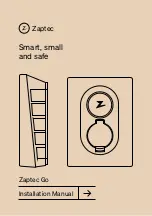
The transfer case buttons are located to the left of the
instrument panel cluster.
Use these switches to shift into and out of
four-wheel drive.
You can choose among four driving settings:
h
(2HI): This setting is used for driving in most street
and highway situations. Your front axle is not engaged
in two-wheel drive. This setting also provides the
best fuel economy.
AUTO 4WD: This setting is ideal for use when road
conditions are variable. When driving your vehicle
in AUTO 4WD, the front axle is engaged, but the
vehicle’s power is sent only to the rear wheels. When
the vehicle senses a loss of traction, the system
will automatically engage four-wheel drive. Driving in
this mode results in slightly lower fuel economy
than 2HI.
G
(4HI): Use the 4HI position when you need extra
traction, such as on snowy or icy roads or in most
off-road situations. This setting also engages your front
axle to help drive your vehicle. This is the best setting
to use when plowing snow.
2-27
Summary of Contents for 2003 Yukon XL
Page 5: ...These are some examples of vehicle symbols you may find on your vehicle v ...
Page 6: ...Model Reference This manual covers these models Yukon Yukon XL vi ...
Page 64: ...Tahoe Yukon Second Row Seat Third Row 50 50 Split Bench Seat 1 58 ...
Page 94: ... NOTES 1 88 ...
Page 157: ... NOTES 3 3 ...
Page 158: ...Instrument Panel Overview 3 4 ...
Page 282: ... NOTES 3 128 ...
Page 372: ...When you open the hood on the VORTEC 8100 V8 engine you ll see the following 5 14 ...
Page 460: ...See Engine Compartment Overview on page 5 12 for more information on its location 5 102 ...
Page 488: ...Maintenance Record cont d Date Odometer Reading Serviced By Maintenance Record 6 20 ...
Page 500: ... NOTES 7 12 ...
















































